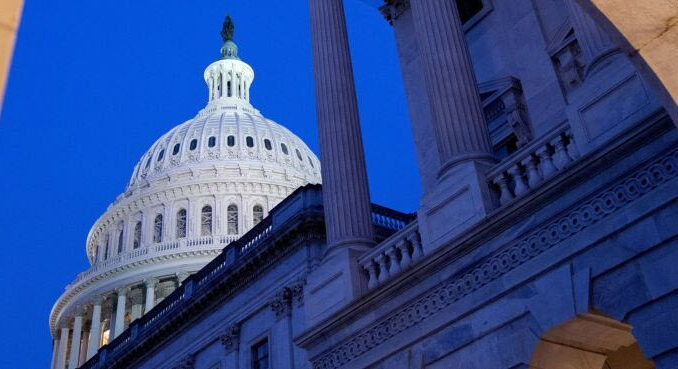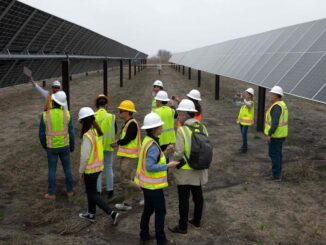
The latest consumer-price index showed inflation accelerating at 9.1%—a four-decade high. This news was followed by the producer-price index, a key indicator for where consumer prices are heading, hitting a near-record 11.3%. Inflation in the US is outpacing other developed countries, which indicates domestic policies—like trillions in reckless government spending—are to blame.
When Democrats passed their first partisan $1.9 trillion reconciliation bill early last year, even liberal economists warned it would trigger inflation. Prices at gas stations and grocery stores have climbed ever since. The average household in my state of Iowa has seen its monthly living expenses increase by $669 since January 2021. Iowa State University released a report showing inflation has caused the equivalent of a 33% cut to rural disposable incomes. Unfortunately, all that the administration and the Democratic majority in Congress have offered as solutions are more spending and tax hikes.
Democrats have dubbed their latest reconciliation proposal the Inflation Reduction Act. In reality, it should be called the Inflation Enhancement Act. One independent assessment found that it wouldn’t reduce inflation—in fact, it could cause even greater inflation in the short term. It also contains $338 billion in tax hikes that will further damage the economy.
All but one Democrat voted for the Chips-Plus Act, providing nearly $80 billion in taxpayer dollars to subsidize some of the most profitable corporations in the world. Then, mere hours later, they unveiled a massive tax hike on domestic manufacturing under the guise of ensuring corporations “pay their fair share.” This same tax hike includes carve-outs for industries that align with the Democrats’ Green New Deal agenda. For example, myriad green energy tax breaks would be inoculated from the corporate minimum tax. The Institute on Taxation and Economic Policy confirms that these credits are a significant reason why seemingly profitable companies pay little or no tax.
This latest tax-and-spending spree doesn’t stop at just providing carve-outs for certain tax credits; it also doubles down on corporate tax subsidies for favored industries to the tune of $270 billion. Coupled with a new provision that allows green-energy developers to sell their credits to others, a host of different businesses and industries will be able to use this new loophole to pay little or no tax. This could include financial institutions, private equity firms, tech firms, and wealthy private investors. Democrats’ message to the business community is clear: If you’re a large, Democrat-aligned green industry you have nothing to worry about. Paying your fair share of taxes is optional. But if you’re a domestic textile or electronics manufacturer, prepare to be taxed into submission.
These policies couldn’t come at a worse time for the economy. In addition to real wages falling and inflation running at a 40-year high, GDP has contracted for two consecutive quarters, indicating a recession. With 93% of the country either “extremely” or “very” concerned about inflation, the last thing businesses and families need right now are tax hikes and rushed, poorly vetted policies that will lead to even more financial uncertainty.
However, nonpartisan analyses by the Joint Committee on Taxation and outside groups show that is exactly what will happen under Democrats’ new plan. Despite President Joe Biden repeatedly promising not to raise taxes on anyone earning less than $400,000, JCT confirms their proposal includes a nearly $17 billion tax hike on families and individuals making less than $200,000 in 2023. Worse yet, their analysis shows Democrats’ tax hikes hit families and workers across every income group—including those making as little as $10,000 a year.
Simply put, the Democrats’ bill broadly targets Americans of all incomes for a tax hike while providing tax benefits to a privileged few—such as helping wealthy Americans purchase an $80,000 electric SUV.
Furthermore, JCT confirms that half of the $313 billion raised by their book-minimum tax falls on domestic manufacturers. As a result, the National Association of Manufacturers estimates this tax could cost more than 200,000 jobs, slash wages by $17 billion, and reduce GDP by nearly $70 billion. This massive tax hike makes little sense, since members of both parties have stressed a need to shore up domestic manufacturing. With China growing in influence and aggression, and pandemic disruptions exposing the fragility of the US supply chain, boosting domestic manufacturing is critical to improving national security. Saddling manufacturers with a giant new tax bill will hurt, not help, our efforts.
Moreover, targeting massive tax hikes at manufacturers will exacerbate surging inflation. The basic economic definition of inflation is too many dollars chasing too few goods. Tax hikes will curtail business investments that are necessary to increase the supply of goods to meet consumer demand. Again, this is underscored by an analysis from the Wharton School of the University of Pennsylvania, which shows Democrats’ proposal will do nothing to bring down inflation and is more likely to make inflation worse in the near term. Even a Moody’s analysis, which has generous assumptions toward Democrats’ policies, found this bill is misnamed and misaimed, projecting only a mere 0.33% inflation reduction—nine years from now.
Notably, Penn Wharton called out the novelty and uncertainty surrounding the corporate-minimum tax, saying “future work is needed” to examine how such a tax would affect capital markets and the economy. Democrats are gambling with an economy in recession, falling real wages and 40-year high inflation by imposing a novel new tax on manufacturers without fully understanding how it works and without knowing the impact their overall tax hikes will have on workers and families. I urge my Democratic colleagues to rethink this approach. Now is not the time to gamble with our fragile economy.
Source: Bloomberg – Chuck Grassley



